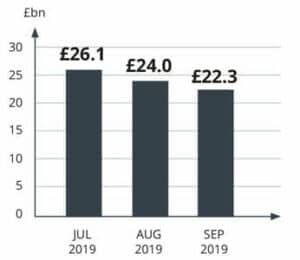Is it worth paying for a mortgage broker?
There are many reasons why a mortgage broker is worth every penny. One of the reasons is to save a lot of time and energy. Particularly considering that a broker has the tools and expertise to do the job for you effectively. This can be compared to using a removal company when moving house. You could do it yourself, but you will spend significant effort and stress doing so. Also, you do not have the equipment to make the move like a professional company could. When finding a lender, there is so much more to it than just getting the best deal. Lenders vary so much with their criteria and requirements. Whether this is the length of employment, how many years of address history you have, or the maximum Loan to Value they will offer.
Shopping around yourself for the best lender can involve a frustrating process. You may find one with a good deal and then read the small print only to find that some aspect of your situation doesn’t meet their lending criteria. In addition to this, applying to different lenders and receiving rejections can negatively affect your chances of securing a loan next time because each refusal will show on your credit record. A broker can significantly increase the chance of your application being successful.
Mortgage brokers have the experience and knowledge of the market. This means they can quickly filter out lenders that would not be relevant to your requirements. This allows them to do a far better job of finding the right lender in far less time. And most likely delivering a far better deal!
Example of justifying the fee
Our standard fixed fee for mortgage advice is £495. Let’s use an example to show how this could quickly be repaid by finding even a slightly better deal (ignoring the other significant benefits and value added by using a broker):
- A mortgage of £200,000 on a 25-year term at an interest rate of 4%. The monthly repayments would be approximately £1,056.
- Assume you use a broker, and they find you a very similar deal but at 3.9%. The monthly repayments would be £1,045.
If you sign up to a 5-year fixed mortgage at this rate, you would save £660 over the 5 years, which more than makes up for paying our fee.
In addition, there is the added benefit of receiving expert support throughout what can be a very daunting process. Either purchasing a property or remortgaging is never straightforward, and there is lots of jargon along the way. Having someone you can call and get a quick, easy answer to any questions.
Brokers also have access to far more lenders than the general public. Many lenders only deal with intermediaries, and therefore, brokers are even more likely to find you a better deal.
What does a mortgage broker do?
A mortgage broker will support you through the property purchase process from start to finish. The first step you should take is to speak to your broker. They will help you better understand your budget based on your specific situation. Everyone’s situation is different. More people are self-employed now than ever, so this is especially important when finding a lender that will be more favourable to your scenario. Your broker will find the best lender and apply for a Decision in Principle. This document indicates from a lender how much they would let you borrow. The figure is based on some basic information. Having a DIP allows you to view properties and prove to the estate agents that you can proceed.
Once you have found the property you wish to purchase, your broker will have all the information needed to prepare your mortgage application. Part of this process is doing one final shop-around to ensure you get the best deal. Then, a Suitability Report will be prepared. This documents the finer details of your mortgage that you should know. It also justifies why this is the right mortgage for you. As part of this, insurance recommendations, such as life insurance or income protection, will also be made. These will also be policies specific to your needs.
Submit your mortgage application.
If you accept the recommendations in the report, you will sit down with your broker and complete the application. They will explain all aspects to you so that you are clear. Your broker will complete the majority of the application. This will save you time and energy. After submitting your application, your broker will chase the lender regularly.
Once your mortgage offer comes through, your broker will check it to ensure everything looks correct and then run through any final points that should be highlighted to you. After accepting the offer, you can proceed with the remainder of your property purchase, but the broker will still be there to support you should you need additional help.
To read our detailed process, including non-mortgage-related steps – please see our mortgage advice process page

What is the difference between a mortgage adviser and a mortgage broker?
Both of these terms are used relatively interchangeably. However, there is very little difference between a mortgage broker and a mortgage adviser. Their job is very much the same, but there is one aspect to consider. There are Independent Mortgage Advisors (or brokers), and then brokers are tied to particular providers. The independent advisors are free to search the whole market to find you the best deal. Other brokers are restricted or tied, so they have fewer lenders to choose from and, therefore, have a worse chance of getting you the most value for money.
It is worth noting that we are fully independent. This means we have access to the entire market. We are also part of various mortgage clubs that give special rates on some products. We have no financial incentive to use these rather than a product from the whole market, only because we could find you a better deal.
How do mortgage brokers make money?
Most mortgage brokers charge a flat fee, similar to our £ 495 fee. Our fee is more competitive than the average adviser’s. Some other advisers receive a fee based on a percentage of the loan, varying from around 0.3% to 1%. For a mortgage of £200,000, this fee would vary from £600 to £2,000.
In addition, mortgage brokers receive a small percentage fee from the lender you eventually choose. You are aware that this is always detailed on the final paperwork you receive before submitting your application. These range from 0.3% to 0.6% of the loan.
Should I speak to multiple mortgage brokers?
Like with anything, it is always beneficial to shop around. See who you trust the most and who offers the best service. Getting on with your broker is also important. When choosing brokers based on fees, you need to be careful. As previously mentioned, some brokers are tied to specific lenders, so they cannot access the entire market to find you the best deal. While these lenders may have cheaper fees, you could lose money in the long run by paying more interest on your loan or higher mortgage charges upfront.
One factor to be aware of when speaking to multiple brokers is that if many different brokers apply for a Decision in Principle for you, this could leave a mark on your credit report. Most DIP applications involve a light credit check. This means there is no evidence that it was conducted, however, this is not always true.







